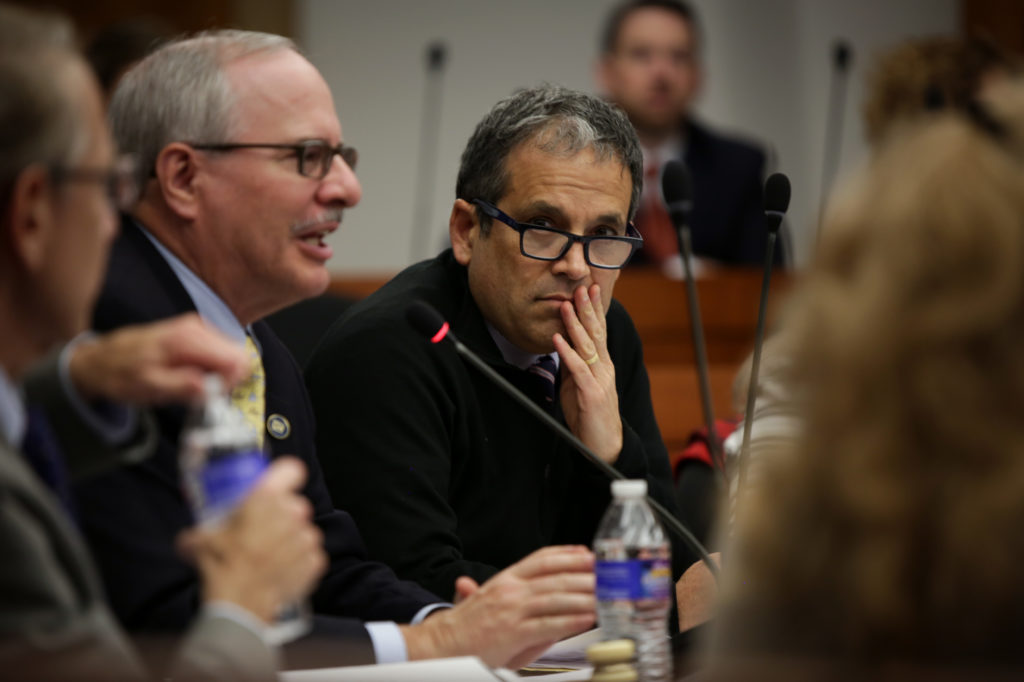GW boosted its graduate student aid packages by 19 percent since officials set aside millions of dollars to bolster graduate research endeavors six years ago, but faculty said students still rely heavily on external funding.
The University set aside between $4 and $8 million in 2012 with the goal of attracting more graduate and postdoctoral students and strengthening the University’s research programs over the next decade. But faculty and students said even years after the University’s investment, graduate and postdoctoral students still struggle with the cost of graduate education, limiting their ability to engage in research.
Provost Forrest Maltzman said fully funded packages typically have four components: a fellowship, a teaching and research assistantship salary, a subsidy for student health insurance and full tuition.
He said that between 2011 to 2012, the University had 523 packages that it considered “fully funded,” and 430 of the packages were at the doctoral level – not including packages in the medical or public health schools. Between 2017 and 2018, the University provided 623 fully funded packages, 564 of which were at the doctoral level, he said.
Officials said six years ago that they hoped to see an increase in the quality and volume of research produced at GW, allowing the University to compete with peer institutions.
“Because many of our graduate students are funded on external research grants, we have been able to increase the number of packages beyond what we envisioned in the previous strategic plan,” Maltzman said in an email.
Maltzman said that in addition to increasing the number of packages, the University made “focused efforts” to increase the value of the awards, and many of the doctoral packages have increased the non-tuition value of the award from $17,500 each year in 2011 to $24,000 today. He said the health insurance subsidy fellowship increased by $650 between 2011 and 2019.
Maltzman declined to say how much money was initially invested in attracting more postdoctoral students in 2012. He also declined to say how the number of graduate students participating in research has changed each year since 2012.
Maltzman declined to say how faculty encourage graduate students to participate in research projects and how faculty members were made aware of the initial investment in 2012.
Charles Garris, a professor of mechanical and aerospace engineering, said the number of students enrolled in his graduate courses has increased since 2012, allowing his department to begin offering more daytime classes for students engaged in research. But he said it is sometimes challenging having more research-oriented graduate students because faculty rely heavily on external funding, not University aid packages, for support.
“In engineering, most graduate students expect to be paid, so it’s incumbent upon most of the faculty to go out and bring in external funding and then, once the funding is available, students are encouraged to participate,” Garris said. “Getting students is not difficult, what’s difficult is getting funding.”
Garry Young, the interim director of the George Washington Institute for Public Policy, said the University has strengthened aid for graduate students and increased research publication rates, but he would like to see even more financial support for graduate students so they are able to be fully involved in research.
“There’s an awful lot of graduate students here who I think would love to be working on research projects, but they have to eat and they have to pay their rent and so they get jobs outside the University because they don’t have funding packages,” Young said.
Guillermo Orti, a professor of biology, said he has yet to personally see the impact of bolstered graduate aid packages. He said that while his department has been able to recruit stronger students in recent years, the trend is more likely related to hiring more research-active faculty who have secured external funding to support graduate students.
“Supporting a graduate student fully on grants is very expensive because not only do we pay their stipend, we also have to pay their tuition,” Orti said. “Tuition at GW is not cheap, so I know a big chunk of the funds that we get from National Science Foundation or other agencies have to be devoted to supporting graduate students that way.”





